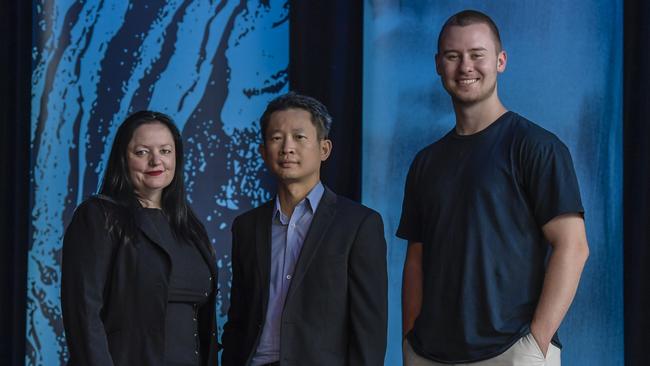Satellite software and space-based anti-poaching surveillance among ideas to be accelerated in SA
UniSA’s Venture Catalyst Space Program has announced the next crop of space entrepreneurs looking to launch their business ideas.
Business
Don't miss out on the headlines from Business. Followed categories will be added to My News.
Dr Yee Wei Law is an expert in adversarial machine learning, cybersecurity in space, and is even working on a project on “attack resilient’’ satellites, but when it comes to business, he’s a novice.
Luckily for Dr Law and his company Mesh in Space, and nine other space start-ups from across Australia and the world, they have been accepted into UniSA’s Venture Catalyst Space Program, which aims to help early-stage companies commercialise and scale their ideas.
Dr Law said his company was so new they were yet to even launch their website, but what they did have was the technical skills needed to develop the software they were hoping satellite constellation owners around the globe would be interested in.
Mesh In Space is building software which will help satellite constellations communicate with each other, in a manner which would be resilient to attack or other equipment failure.
This would be achieved by providing a “mesh network’’ similar to those used by infantry battle groups or in a more day to day example - in homes and businesses.
“We are actively working on the technology,’’ Dr Law said.
“The space sector is expanding very rapidly and one of the crucial developments has been satellite constellations to manage applications from Internet of Things services, consumer communications services and even defence applications like detecting hypersonics.’’

Dr Law said there were a lot of cybersecurity holes which needed to be patched in the new technology, which was where Mesh In Space came in, by providing a secure network allowing satellites to talk to each other in a very secure manner.
Dr Law said he was looking forward to spending time with like-minded businesspeople and mentors and learning how to turn their idea into a flourishing business.
Other companies which have been accepted into the Venture Catalyst program include India’s Grahaa Space, which is working on a plan to launch a constellation of satellites into low earth orbit which could stream near real-time videos of earth, and SA company Blue Dwarf, which is developing a platform which can automate and streamline the process of applying for permits to carry out space activities.
The six-month program is being run by the university’s Innovation and Collaboration Centre and is funded by the State Government’s $1.5m Space Innovation fund.
ICC director Jasmine Vreugdenburg said previous participants in the program had so far raised $11m in investment and grants and created 90 jobs.
“Three international start-ups will participate in our program, while three will come from interstate,” Ms Vreugdenburg said.
“We also have fantastic representation from homegrown South Australian companies.’’
“From using satellites to combat overfishing, to designing technology to grow plants in space, to even creating humanoid robots to perform tasks in zero-gravity, this cohort has a lot in store for us.”



